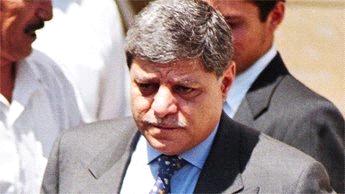Ammon News - By Awwad Khalayleh and Banan Malkawi
AMMONNEWS - The formation of the newly appointed government that was sworn-in before King Abdullah on Monday signifies a careful selection of political, legal, academic, and economic figures that also reflects a sensitive balance of personalities that represent major segments of Jordanian society.
The newly-appointed cabinet includes 16 ministers appointed to their respective portfolios for the first time, the majority of which are well-known for being highly qualified in academia and specialized expertise in their sectors.
Two factors appear significant in the selection of ministers in the government headed by an international judge: geographic distribution and technocracy.
Prime Minister Khasawneh had declared during his selection process in the past week that his first condition in considering selection of his ministers is "integrity in the first place, followed by the geographic distribution factor."
The new formation reveals that most of the new ministers are clear of "corruption suspicions" in the minds of Jordanian public opinion, which has for long complained of corruption-smeared figures.
This particular factor gives Khasawneh credit for holding steadfast to his first condition, i.e. integrity.
TECHNOCRATS:
Technocracy is the major theme evident in the new formation, as most of Khasawneh's ministers are experts appointed to ministerial portfolios directly related to their academic, technical, and professional fields.
Global expert readings and experiences reveal that governments that are characterized with technocracy in developing democratic states in particular - and third world countries in general - tend to be more effective and successful than governments formed on a political basis.
GEOGRAPHIC DISTRIBUTION
Ministerial portfolios are evidently carefully distributed based on geographic considerations, representing the 12 governorates and 3 Badia regions, with the likes of Kleib Fawwaz (State Minister for Cabinet Affairs) representing the north, Nayef Fayez (Minister of Tourism) representing the Central region, and Ibrahim Al Jazi (Minister of State for Legal Affairs) representing the southern region.
Tribal consideration and representation is prominent in the new government, coupled with expertise and qualification of the selected ministers representing Jordan's main tribes.
The tribes of Bani Hassan, Bani Sakhr, Bani Hamidah, Bani Abbad, and Odwan are represented in the Public Sector Development, Tourism, Water and Irrigation, Awqaf and Religious Affairs, and Health ministers.
FIRST-TIMERS
16 Ministers are holding portfolios for the first time
Minsiter of Interior Muhammad Raoud (Retired Lieutenant General)
Minister of State for Legal Affairs Ibrahim Al Jazi (Academic and Specialist in International Law)
Minister of State for Media Affairs Rakan Majali (Veteran Journalist and columnist)
Minister of Culture Dr. Salah Jarrar (Academic, former Secretary General of Culture Ministry)
Minister of Public Sector Development Ikhleif Khawaldeh (Secretary General of Minister of Labor, Specialist in Public Administration)
Minister of Municipalities Maher Abu Samen (Head of Salt Municipality and prominent Mayor)
Minister of Youth and Sports Dr. Muhammad Noh Qudah (Academic)
Minister of Tourism Nayef Hmeidi (Director of Jordan Tourism Board)
Minister of Water and Irrigation Musa Jama'ani (Secretary General of Jordan Valley Authority)
Minister of Political Development Haya Al Qaraleh (Former Member of Parliament)
Minster of Energy Qutaibah Abu Qurah (Specialist in Energy Sector)
Minister of Environment Yassin Khayyat (Director of Jordan Standards and Metrology Organization)
Minister of Finance Umayya Touqan (Former Governor of Jordan's Central Bank and economic expert)
Minister of Agriculture Ahmad Al Khattab (former member of parliament)
Minister of Labor Maher Al Waked (Central Bank of Jordan official)
Minister of Cabinet Affairs Kleib Fawwaz (Long time diplomat, former Senator, member of Jordan's Permanent Delegation in New York)
RETURNING MINISTERS
Four ministers from ex-Prime Minister Marouf Bakhit's government maintained their portfolios, they include Minister of Foreign Affairs Nasser Judeh, Minister of Public Works Yahya Kasbi, Minister of Planning Jaafar Hassan, and Minister of Health Abdul Latif Wreikat.
Meanwhile, nine new ministers had previously held ministerial portfolios in previous governments, they include Minister of Education Dr. Eid Dhayyat, Minister of Justice Salim Zoubi, Minister of Transportation Alaa Batayneh, Minister of Social Development Nisreen Barakat, Minister of Industry and Trade Sami Gammoh, Minister of State for Prime Ministry and Legislation Ayman Odeh, Minister of Endowments (Awqaf) and Religious Affairs Abdul Salam Abbadi, Minister of Higher Education Ruwayda Ma'aytah, and Minister of Communication Bassem Rousan.
JORDANIANS' PUBLIC PERCEPTION
The success of the new government formation in Jordanians' public perception will be heavily wagered on its ability to realize the aspirations of the "Jordanian street" which has been for over 10 months unprecedentedly vocal in demanding real, tangible, and comprehensive political, economic and social reforms.
